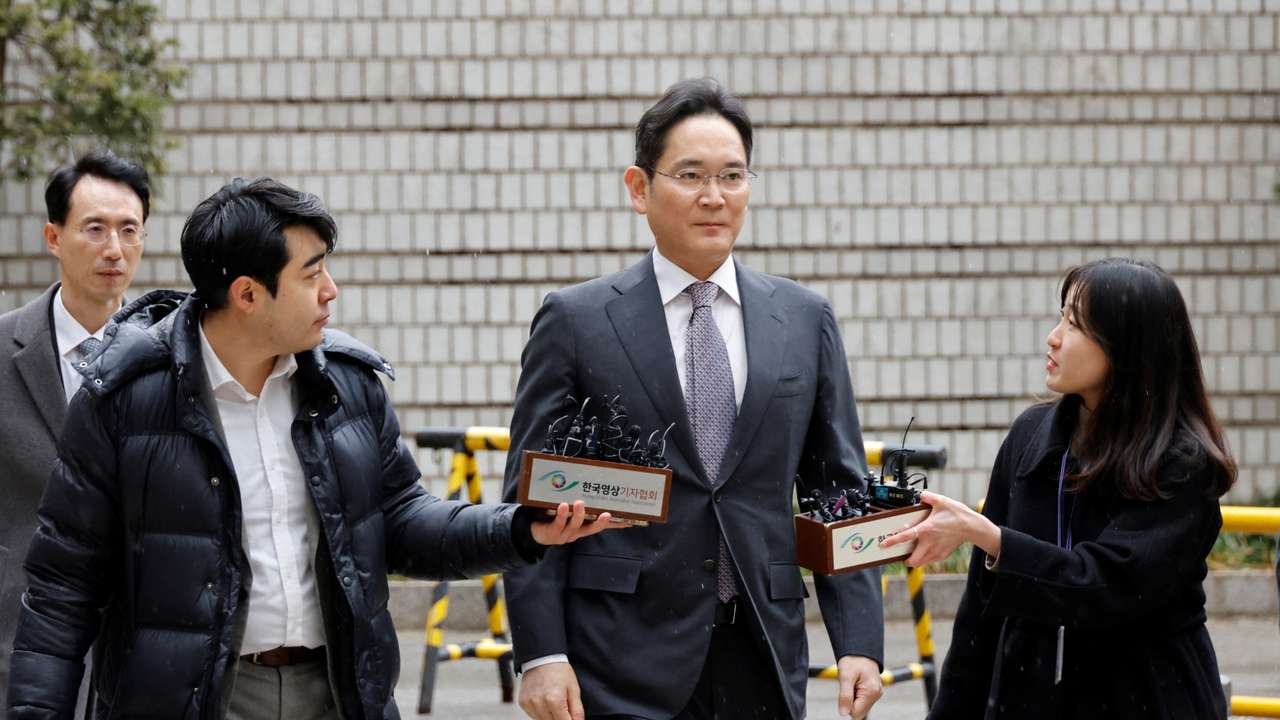Samsung chief Jay Y. Lee cleared of charges in 2015 merger case

Samsung chief Jay Y. Lee cleared of charges in 2015 merger case
By Joyce Lee and Hyunsu Yim
Samsung Electronics Chairman Jay Y. Lee was found not guilty of accounting fraud and stock manipulation by a Seoul court on Monday in a case about a 2015 merger that prosecutors said was designed to cement his control of the tech giant.
The ruling, which was a surprise to at least some analysts who had expected a suspended sentence, could help give Lee a freer rein in steering the country's biggest conglomerate.
"For entrepreneurs and business leaders, their job is to drive innovation and create jobs, but Samsung hasn't been able to do much of that for nine years because of legal risks," said Kim Ki-chan, a business professor at the Catholic University of Korea.
Due to Lee's legal problems, Samsung Electronics had become bureaucratic and risk-adverse, he added.
Lee, 55, and other former executives were accused of engineering a merger between two Samsung affiliates - Samsung C&T and Cheil Industries - in a way that rode roughshod over the interests of minority shareholders.
Prior to the merger, the Lee family and related entities controlled Cheil but not Samsung C&T which was a major shareholder in Samsung Electronics - the crown jewel in the Samsung conglomerate.
Prosecutors had sought a five-year jail term. Lee denied wrongdoing, arguing that he and other executives acted on the belief the merger would benefit shareholders.
The panel of three judges at the Seoul Central District Court said that the merger decision was reached by the boards of the two companies after their consideration and review.
"It cannot be concluded that the sole purpose was to strengthen management rights of defendant Lee Jae-yong and ease his succession within the Samsung Group," Judge Park Jeong-je told a packed courtroom, using Lee's Korean name.
All 14 defendants were acquitted.
The sentence prevents a return to jail for Lee who was convicted in 2017 of bribing a friend of former President Park Geun-hye. He served 18 months of a 30-month sentence and was pardoned in 2022 by current President Yoon Suk Yeol with the government saying he was needed to help overcome a "national economic crisis".
If prosecutors decide not to appeal the ruling, it would clear up Lee's legal troubles which date back to 2016.
Lee's lawyer, Kim You-jin, thanked the court for "a wise decision."
Park Yong-jin, a lawmaker for the main opposition Democratic Party, decried the ruling in a Facebook post saying Lee's succession was unfair and that heads of conglomerates should not be protected in the interest of a fair market economy.
In a related case, the Permanent Court of Arbitration in The Hague last June ordered the South Korean government to pay U.S. hedge fund Elliott $108.5 million for the state-run National Pension Service's role in approving the $8 billion merger.
South Korea's biggest conglomerates are still owned and controlled by their founding families and the public has long veered between anger over their many scandals and recognition that the families are responsible for much of the country's economic success.
In recent years, public perception of conglomerates has become more favourable, polls have shown, as business leaders have sought to become more personable through public appearances and social media posts.
As of end-September, the Lee family and related entities owned 20.7% of Samsung Electronics.
Shares in Samsung C&T, the group's de-facto holding company in which Lee is the largest shareholder, rose as much as 5% ahead of the ruling before trimming gains to be largely flat.
This article was produced by Reuters news agency. It has not been edited by Global South World.